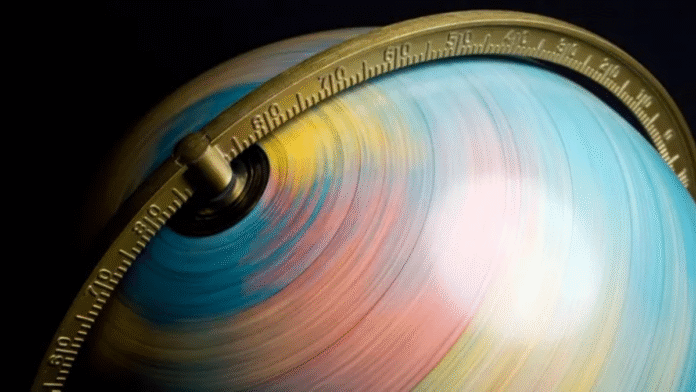Key Point Summary – Earth Will Spin Faster Today
- July 22 will be 1.34 milliseconds shorter than the standard day
- Earth’s rotation is accelerating, breaking records since 2020
- July 10 marked the shortest day so far in 2025 at 1.36 milliseconds
- Scientists may need to subtract a second from clocks by 2029
- Possible causes include Earth’s core slowdown or mass redistribution
- A negative leap second has never occurred in history
- Experts predict the trend could reverse again soon
Earth Shaves Time as Rotation Breaks Records
Today, Earth will complete a full rotation 1.34 milliseconds faster than usual — making July 22 the second-shortest day ever recorded. While the time difference may be imperceptible to humans, scientists are watching this growing trend with alarm and fascination.
According to researchers, our planet has been spinning faster than at any time since atomic clock measurements began in 1973. July 10 currently holds the title for the shortest day of 2025, clocking in at 1.36 milliseconds shorter than the standard 24 hours.
The Race Against the Clock
Earth’s rotation isn’t a constant. Over geologic time, it has slowed due to tidal friction caused by the moon. Billions of years ago, a full Earth day lasted only 19 hours. As the moon drifted away, it gradually pulled on the planet’s spin, stretching days longer.
But since 2020, Earth has shocked scientists by repeatedly beating its own speed records. The fastest day ever recorded occurred on July 5, 2024, when the rotation finished 1.66 milliseconds early.
If the acceleration continues, scientists warn that a “negative leap second” may be necessary by 2029 — subtracting a second from the global atomic clock system to match Earth’s faster spin. That adjustment has never been done before.
What’s Causing Earth’s Sudden Acceleration?
While atmospheric and oceanic changes can influence Earth’s spin, they don’t fully explain this new burst of speed. One possible contributor? The planet’s inner core.
A 2024 study pointed to a slowdown of Earth’s liquid core, which could be transferring angular momentum to the crust and mantle, causing them to rotate slightly faster.
Another theory involves melting polar ice and rising sea levels. Shifting water masses may be moderating — but not causing — the acceleration.
Dr. Leonid Zotov of Moscow State University, a top authority on Earth’s spin, told Timeanddate.com: “The cause of this acceleration is not explained. Most scientists believe it is something inside the Earth.”
What’s Next? A Return to Slower Days?
There are hints that Earth’s acceleration might be tapering off. While July 22 will be the second-shortest day, August 5 is expected to come in slightly longer — just 1.25 milliseconds shorter than usual.
Zotov believes this may all be temporary. He predicts that Earth will eventually slow down again, in line with its long-term trend.
If so, this current burst of speed might turn out to be a strange planetary hiccup — not the beginning of a new era.
Still, with leap seconds on the table and scientists left puzzled, the mysteries of our spinning planet continue to challenge what we thought we knew about time itself.




